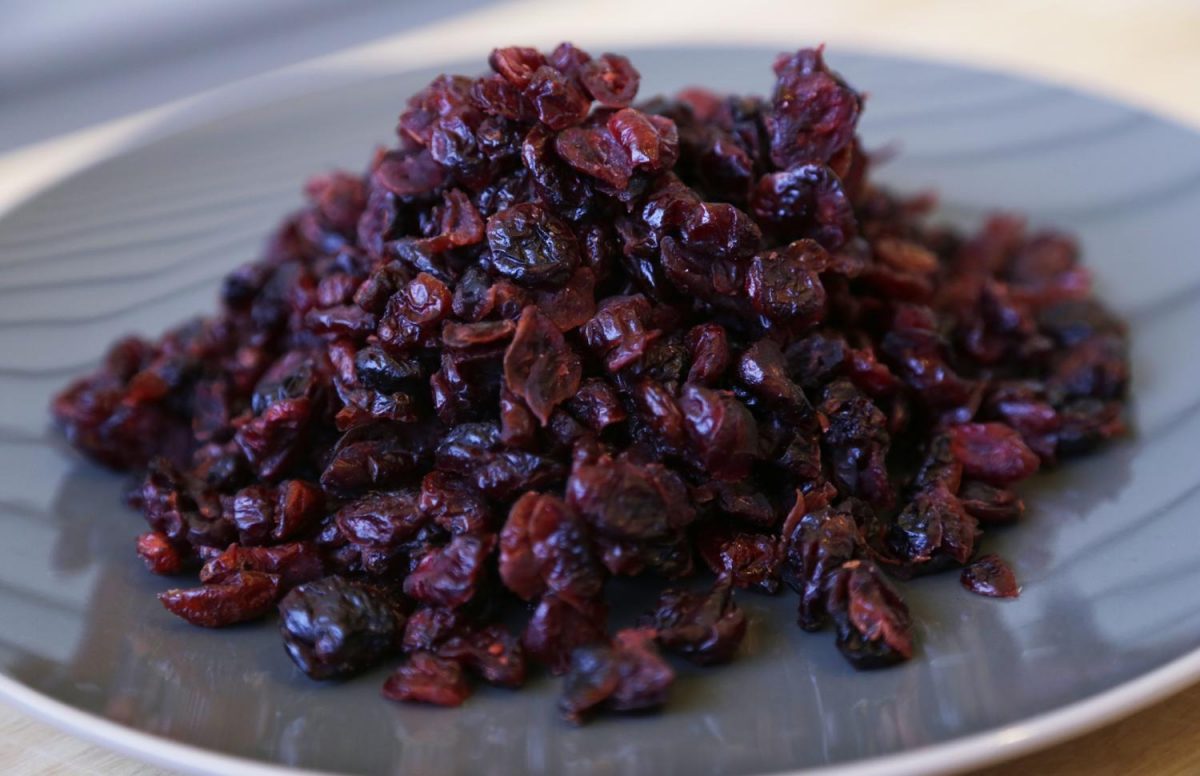Power of cranberries: Boost immunity, versatility
Ryan Pugh | Evergreen photo illustration
Cranberries are in season between September and mid-November. They are often used for sauces and paired with other dishes around this season.
October 4, 2017
Health:
Cranberry juice is great for cleansing any unfamiliar bacteria, but is usually sweetened artificially and thus is not as healthy for the body. It may be wise to glance at the sugar content before purchasing a container. People tend to drink cranberry juice to ease urinary tract infections. Cranberries can also help settle an upset stomach.
Cranberries are a substantial source of Vitamins C, K, A and strong antioxidants, according to a Medical News Today article. These all work to boost the immune system, working against cardiovascular disease and inflammation. Cranberries are also proven to benefit oral health, as the vitamins prevent bacteria from damaging teeth. The little red berries can prevent gum diseases, according to the article. Cranberries are very high in fiber as well, which can lower blood pressure and cholesterol and prevent several diseases and infections. Overall, the largest benefit of cranberries is their use in clearing the body of bacteria, even fighting infections and increasing the body’s ability to heal wounds.
Uses:
Cranberries are in season during autumn, so Medical News Today recommends buying them from September through October. The berries can be refrigerated for up to about two months and frozen for longer. Fresh cranberries offer the most reception for the body, and can be the toppings for yogurt, oats or whole wheat cereal. Cranberries can also be blended with smoothies, baked in muffins or cookies, or dried out and eaten as snacks. One could also eat cranberries in a sauce by melting them in a pot with sugar and water until it reaches a thick liquid consistency. Cranberries are best eaten raw, but cranberry sauce is a staple of the fall season and can still be enjoyed in any desired form.












